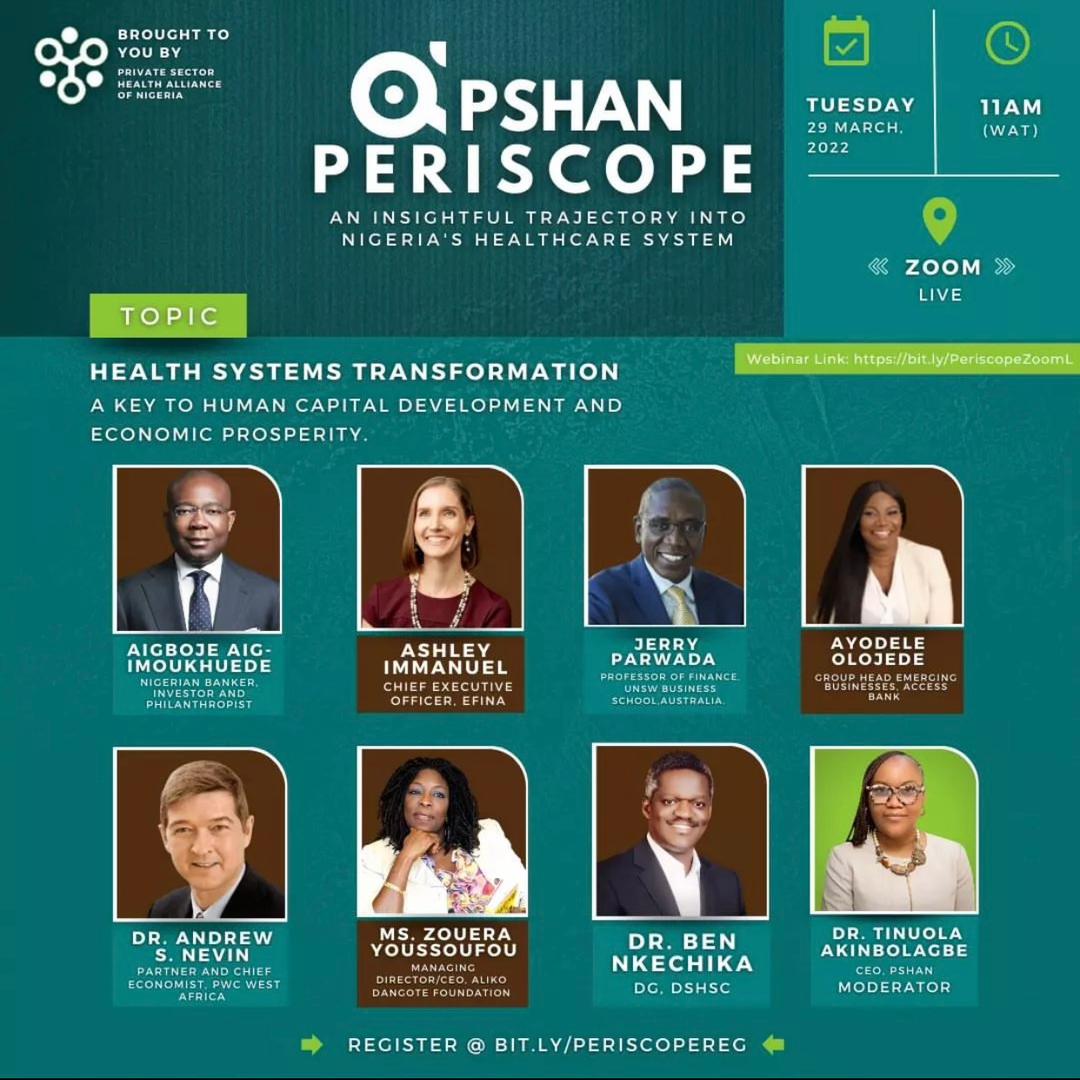Communique issued at the PSHAN Periscope webinar titled,
Health Systems Strengthening: A Key to Human Capital Development
Organized by Private Sector Health Alliance on the 29th of March 2022
Current Realities
Foundational Issues:
Though life expectancy in Nigeria appears to have increased over time when compared to other countries in the same socio-economic bracket, a significant gap still exists. Nigeria, therefore, needs a systemic rather than an emergency approach to health issues to enable Nigerians to live longer, healthier, and better lives. We agreed that the Abuja declaration which is yet to be met in most states of Nigeria creates a significant underinvestment in the health sector. We noted that financial inclusion is important based on the strong correlation between fertility rate and GDP per capita, therefore systems need to be put in place to include women and other excluded groups financially and digitally, especially those in the informal sector.
Opportunities for Private Sector Engagement:
Nigeria’s current population has more than sixty percent below the age of thirty, thus a strong primary and public health care system with a focus on our young population is
important. In doing this, health insurance should be made mandatory, and successes celebrated while focusing on quick wins. Trade agreements like the African Continental Free Trade Area (AfCFTA) and synergy with countries like India that overcame similar challenges to Nigeria can improve health commodities manufacturing and reduce reliance on imports. HRH challenges, particularly in the public health sector can be addressed by disincentivizing industrial actions as interim measures while working on long-term measures to improve the recruitment and retention of healthcare workers, particularly at the primary healthcare centers.

Our Resolution
- We resolved to get the organized private sector actively involved in investing in the health sector by eliminating trust issues, encouraging partnership and ensure accountability between the private and public sector.
- The focus is to be on systems and strategies that enhance the use of technology and innovation in transforming health care, access to funding, and harmonization of health data to inform decision making.
- Stakeholders are to seek ways to harness FDI from diaspora directly into the health system and explore innovative mechanisms for prepaid health services.
- We need to keep the conversation active on platforms like the PSHAN Periscope to keep stakeholders on track and bring about positive change.
In summary, the scale of challenges in the public health sector is enormous but solutions can be proffered through collaboration with the private sector , using organized groups like PSHAN to drive innovation and improved access to quality healthcare delivery services.

L-R (UP): Dr Tinuola Akinbolagbe (CEO PSHAN), Ms Zouera Youssoufou (MD Aliko Dangote Foundation), Dr Andrew Nevin (Partner and Chief Economist, PWC West Africa).
L-R(DOWN): Dr Ben Nkechika (DC DSHSC), Mr Aigboje Aig-Imoukhuede (Founder & Chairman of The Aig-Imoukhuede Foundation), Ms Ashley Immanuel (CEO EFINA)